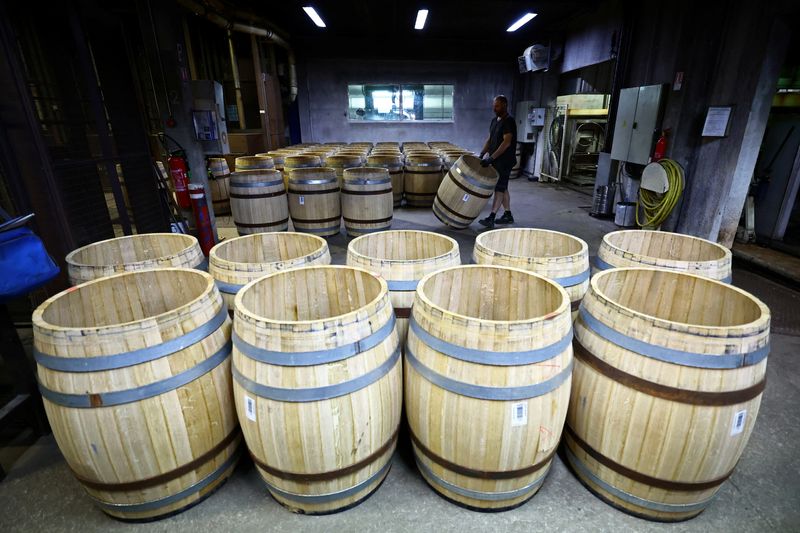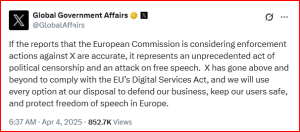
By Tassilo Hummel
COGNAC, France – Christophe Fillioux’s family estate in the cognac region of southwest France has survived for five generations, through wars and financial crises. Now, though, he has started to tear up some of his vineyards by the roots.
U.S. President Donald Trump’s decision this week to slap 20% tariffs on all European goods is deepening the pain for France’s nearly $3 billion cognac industry, which was already being buffeted by global trade tensions.
In October, the region’s 4,000 growers were targeted by Beijing with tariffs following the European Union’s levies on Chinese-made electric vehicles. Since then, cognac sales to China, its second-largest market by volume, have plunged by more than half.
With the U.S. – the world’s top cognac consumer – accounting for one out of every two bottles sold, Trump’s tariffs have left many growers apprehensive.
Fillioux, the 45-year-old owner and master blender of the Jean Fillioux cognac house, founded in 1894 by his great-great-great grandfather, had already torn out half a hectare of old vineyards. He plans to uproot another hectare-and-a-half next year as part of an industry-wide plan to help growers through the crisis.
“The situation is very hard to navigate. We’ve got a huge visibility problem,” Fillioux said, standing in a vineyard planted by his father in 1980 – the year he was born.
Worse may be to come. Trump has threatened 200% tariffs on European wine and spirits if Europe hits US bourbon with additional duties.
Cognac exports to the U.S. last year roughly amounted to 1 billion euros ($1.10 billion). And the U.S is also France’s top export market for wine: sales rose 8% last year to $2.3 billion last year, according to the Federation of Wine and Spirits Exporters, partly as buyers stocked up in anticipation of Trump’s policies.
Fillioux’s estate is working with its distribution partners to try to develop new markets in countries including Thailand, Vietnam, and Nigeria.
But he counts himself more fortunate than some other producers: he has little debt and owns his brand, making him less reliant on contracts with big houses such as LVMH-owned Hennessy, the largest cognac maker.
“Problems are part of a vintner’s life, with all the good and bad surprises”, he said.
GLOBAL SLOWDOWN
Even before the trade tensions with China and the United States – which comprise well over three-quarters of cognac revenues – cognac sales had been falling over the last two years due to a global slowdown in luxury spending.



